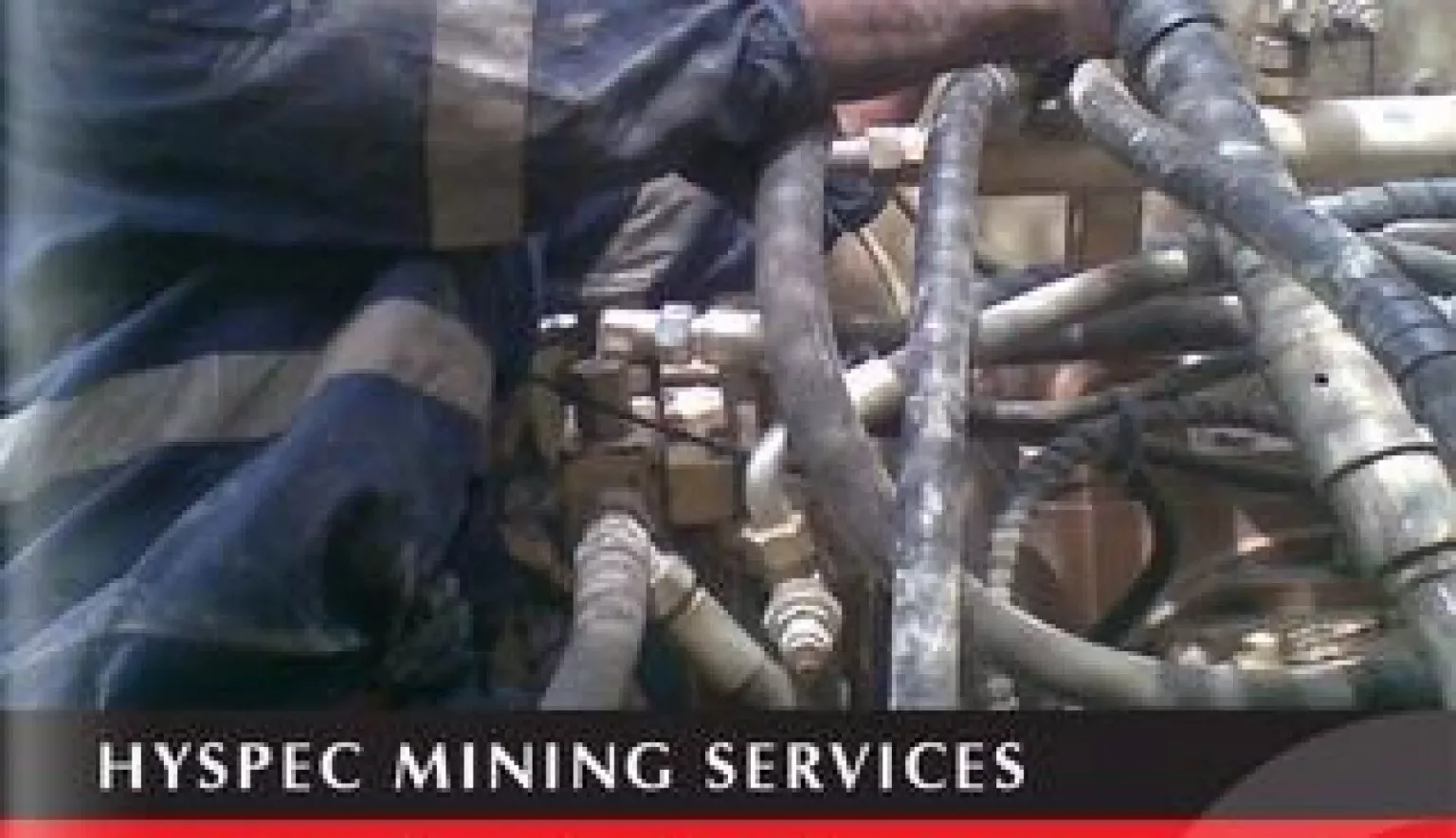Growing from a single container Company in Ghana in 1996 into one that operates more than 65 hydraulic hose workshops on mines across 15 countries, Hyspec Mining Services (Hyspec) is considered the premier supplier of hydraulic parts and service equipment to the mining industry in Africa.
SEIZING OPPORTUNITY IN AFRICA
Incorporated in Perth, Western Australia, Hyspec is part of the Fluiconnecto by Manuli Group, a division of Manuli Rubber Industries, known as a world leader in the manufacture of steel reinforced hydraulic hoses and fittings.
With more than 250 employees distributed across registered offices in nine African countries – namely Guinea, Ghana, Mali, Sierra Leone, Burkina Faso, DRC, Zambia, Tanzania and Cote d’Ivoire; as well as Botswana and South Africa if Fluiconnecto by Manuli’s operations are included – Hyspec is contributing to the sustained development of the continent’s mining industry, supporting local mines in spite of the substantial price decrease of commodities that has hit the resources sector in the past two years.
“As a result of this, mines had to find ways of reducing their operating costs, and this is where Hyspec’s value proposition comes in. By providing best-in-class quality products and implementing a number of preventative maintenance solutions that minimise the mining equipment’s downtime caused by hydraulic failures, we have been able to help mines increase production and also reduce total cost of ownership of machinery,” says Alan Wood, Managing Director of Hyspec Mining Services.
DESIGNED TO WITHSTAND
Working hand-in-hand with Manuli Hydraulics’ research and development teams, Hyspec has benefitted from an enhanced product range which it has been able to introduce to the African market. This includes the Rockmaster and Goldenlso range of products, which are more flexible, durable and resistant to abrasion.
Wood highlights: “Our products are designed specifically to withstand the day-to-day harsh operating conditions of a mine; tackling heat, dust, abrasion and general wear and tear. Boasting a longer lifespan than competing brands, using our hose solution allows a mine to save on operating costs, and this guarantee is supported by our on-site teams who carry out daily inspections in order to identify potential hose failures and replace them before they fail, eliminating unnecessary downtime and costs from the production time lost.”
By having on-location hydraulic hose assembly workshops, complete with stock and a team of experienced technicians, Hyspec’s removes investment and financial risks for its clients. “We support all the workshop, labour and stock costs, and invoice our customers each month per hose made,” he adds.
Complementing its hydraulic hose assembly offering, the Company has also introduced a range of lubrication and fast fuelling products and is now able to offer solutions to the mines for their lube bays, service trucks, fuel farms and fuel distribution points; teaming up with industry leaders’ Graco and Banlaw.
Wood explains: “For now, our strong business model, service levels and quality products allow us to remain ahead in some of Africa’s most challenging environments. We have in place a very efficient supply chain and stock management system so that we can remain focused on preventing the downtime of mines due to hose failures, making sure we hold sufficient stock levels in all of our workshops at all times, including a supply of slow-moving items which might only be required once every 24 months.
“This is, and always will be, a costly exercise that requires a team of skilled workshop technicians who must understand how to identify hose failure causes amongst other key details so that we can understand what improvements can be implemented to make sure it doesn’t happen again.”
ACHIEVING SUSTAINABILITY
While product research forms a core part of Hyspec’s continuous improvement strategy to future-proof the business, securing highly skilled, local staff is often a challenge in the mining industry and something that Wood feels passionately about.
He emphasises: “We believe that achieving long-term sustainability is not possible with expats only as this is too costly. We need local staff that have the local knowledge and cultural understanding; two aspects that are incredibly useful when having to deal with local administrations.”
With a comprehensive training programme in place, from basic tasks right through to management, the Company allocates a significant amount of its time to upskilling local people and managing sustainability with local employment needs. “It can take a long time before employees can assemble hoses or manage a workshop without supervision, so we utilise a team of expats who supervise our staff while they train to satisfactory levels before eventually becoming self-sustainable.
“However, regular in-house training is still required after working under close supervision, to make sure that the latest procedures are adhered to,” says Wood.
LARGER FOOTPRINT
In order to grow its geographic footprint, Hyspec is using its managed services model to test the market in each respective country of interest in order to limit risks incurred, by supplying a managed solution comprising a local workshop and hose assembly equipment.
“The managed workshop approach allows us to set foot in a new country without establishing an office there so as to better understand legal, economic, employment and operating constraints. The difference between this and our ‘traditional’ style of workshops is that we do not consign the stock to the mine, it is bought upfront by the client, meaning that the investment risks are shared with our client,” explains Wood.
“At a later stage, if and when the market justifies it, we then have the option to register a Hyspec office. We have successfully followed this approach in Cote d’Ivoire and in the DRC.”
Given the wide range of industries that utilise hydraulic equipment in their daily operations, Hyspec is to target new end-user markets in the oil & gas, construction and maritime sectors in order to increase its footprint not only in Africa, but also in Asian markets.
“Next year, we will be building a number of new workshops in countries where we are already present, as well as in new locations. We are driving growth in the DRC, Angola, Mozambique and Nigeria as these countries have huge potential for us to grow even further. Our move into new countries will form a crucial part of our long-term strategy and we have identified Liberia, Mauritania, Nigeria, Madagascar, Egypt, Eritrea, Ethiopia and Mozambique as locations which have the attributes that Hyspec typically looks for,” Wood details.
He concludes: “Even though the business and political environments in these countries lack some stability, we believe this will improve over time and become favourable for Hyspec; and whoever gets there first will be able to seize the best opportunities.”























